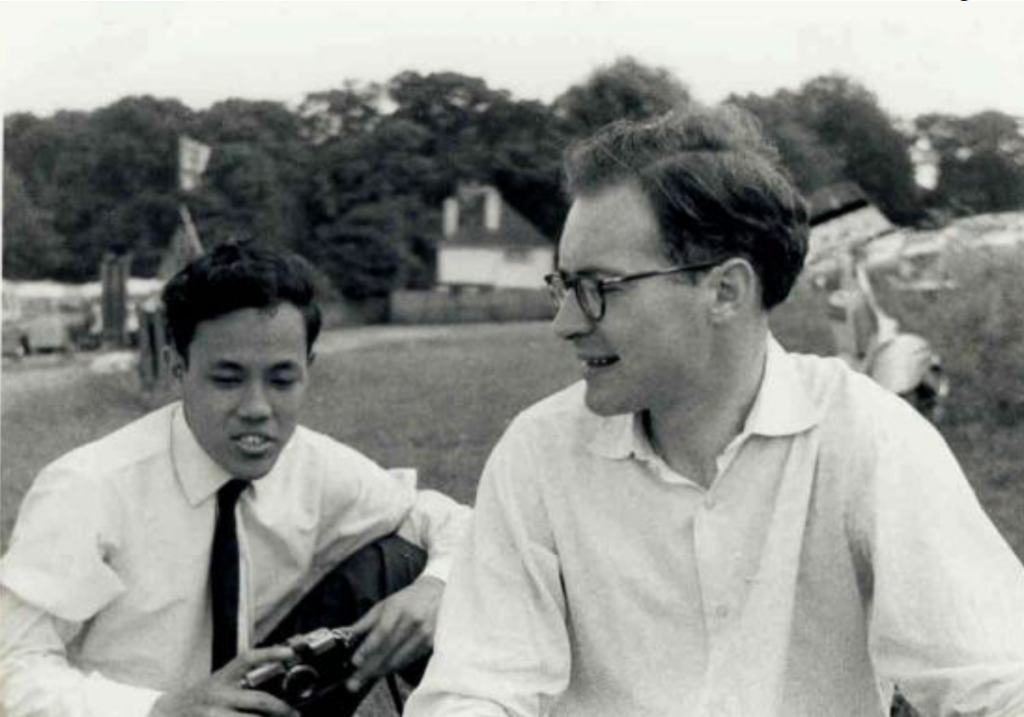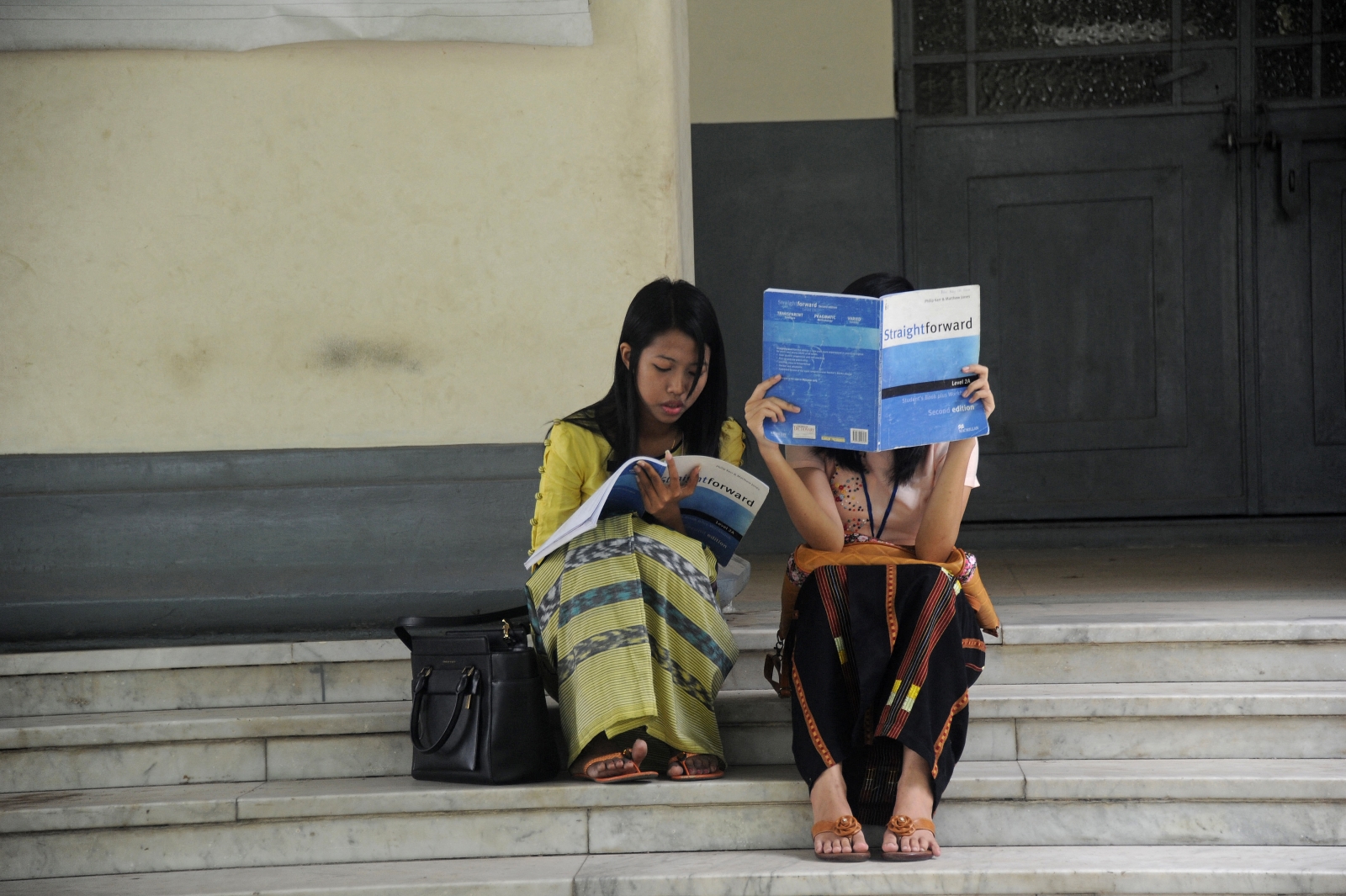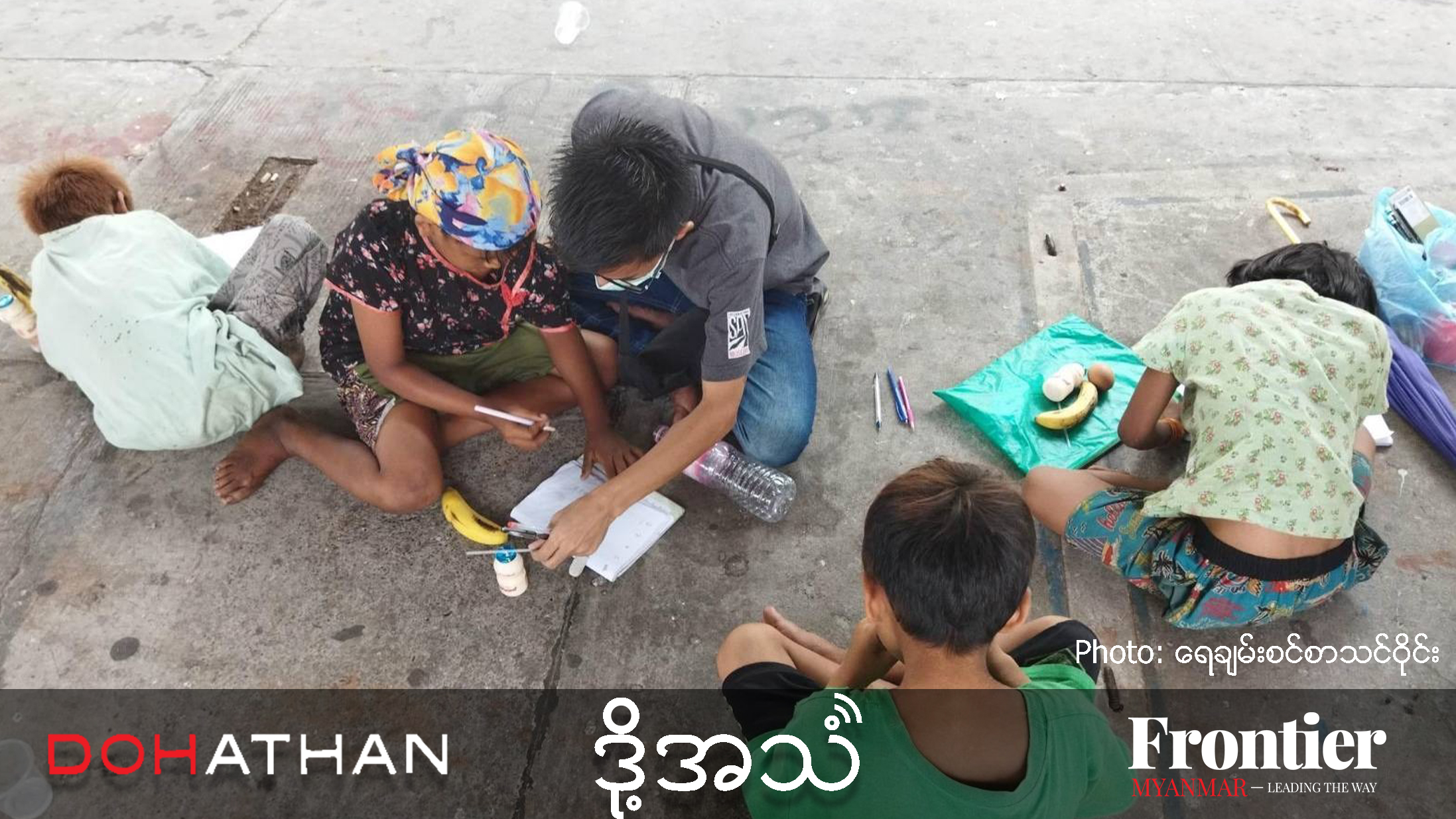The British linguist first set foot in Myanmar in 1960 and trained generations of Burmese language students who loved him for his patience, humour and unrivalled expertise.
By LUKE CORBIN | FRONTIER
A gentle giant of Myanmar studies has left us. John Okell died painlessly at his home earlier this week. At the time of his death, John was perhaps the English-language world’s pre-eminent teacher of the Burmese language. He stood on the shoulders of other giants, but his many textbooks and dictionaries – and his early adoption of audio technology for language learning, including cassette tapes, CDs and MP3s – opened the study of Burmese to thousands of new learners, as did his pioneering work creating the Avalaser Burmese computer font. He also created the most widely used romanisation scheme for transliterating the Burmese language into the Roman alphabet.
John’s name graces dozens of acknowledgement sections in theses, articles, books and other publications on Myanmar. He was a true denizen of the scholarly community as well as a much-loved linguist, teacher, friend, father and husband. Simply put, everyone studying Myanmar knew John or wanted to know John. He showed enviable generosity in helping his friends, colleagues and students and was deft in assisting all learners of Burmese in achieving their particular goals.
John was also chairman of the London-based Britain–Burma Society, where he was widely respected as a fair and generous host. I remember, at one of the society’s sessions in 2017, a documentary stridently critical of the military regime premiered. John patiently listened to the many complaints from elderly British members who had had their family’s assets expropriated or nationalised. He was always tactful and understood deeply the humanity and sadness of the people living in Burma, who were the real victims of the slide into poverty that the country underwent during the first 40 years of his teaching career. John was committed to teaching Burmese to help Myanmar reconnect with the outside world, whenever it should become politically feasible once more, which it did eventually.
John first began studying Burmese in 1959 at the School of Oriental and African Studies, University of London, under Saya Hla Pe and others. He was sent to Burma in September 1960, where he quickly moved out from his assigned university dormitory to a homestay arrangement in Amarapura, near the city of Mandalay. John also lived in a monastery for a time, in a rural village out past Shwebo, north of Mandalay in Sagaing Region, and he even accompanied a theatre troupe for a month, performing in Bhamo, Indawgyi and Mogaung in Kachin State. He roamed to Dawei, Sittwe and Inle Lake, and came back to SOAS a year later speaking fluent Burmese. Being made first Lecturer and Senior Lecturer there, he was eventually hired as Professor of Burmese. John taught or was connected to SOAS in some capacity until his death.
While he did “officially retire” at age 65, John continued publishing on Burmese and teaching for the British government and elsewhere. In October 2016 John taught intensive classes at RMIT University in Melbourne, Australia, for the Australia-Myanmar Institute. It was John’s first visit to the country and, at the age of 82, he maintained that he would be getting around only by bicycle. He was unimpressed with Australia’s draconian helmet laws, cheerfully describing my home as a “nanny state” for the readiness of its police to stop gentlemen who insisted on riding with a flat cap rather than an Australian Standard-approved bicycle helmet.
John also taught classes in Chiang Mai, Thailand for several years, and beginning in 2009 started teaching intensive courses in Yangon, which he continued for 11 more years. John would make an annual remark about the absurdity that he, a British person, was still being invited to teach Burmese in Myanmar, but there was an insatiable and growing demand by foreigners living in Myanmar for John’s inimitable in-person pedagogy.
I had the immense pleasure of working with John while helping administer these intensive Burmese language classes in Yangon in 2017, 2018 and 2019. He used to refer to me as a “brick” (it took me some time to fathom that this was meant as a compliment). In 2017 I assisted John with the typesetting and new digital edition of his Dictionary of Grammatical Forms. Assisting John in his roles as a teacher and as an author was an absolute pleasure. He had an immaculate attention to detail we can only aspire to.
In 2018, the British embassy in Myanmar held an event celebrating the 10th anniversary of the in-country Burmese intensive language course. John and his co-teacher Justin Watkins described the early years of running the course, when Myanmar was starting to “open up” but when it was by no means clear that the radical notion of British linguists teaching Burmese in Myanmar would be tolerated. The surreptitious small class first sat in an improvised environment above an art studio in downtown Yangon, before moving to the French Institute in Sanchaung when the course became official.
The impacts of COVID-19 meant this year’s course had to move online. John still participated as a teacher from his London home but unfortunately fell ill during the first week in June, only two months before he passed away. John was a committed teacher. He taught Burmese right up until he was literally physically no longer able to.
In 2016 John was awarded an honorary doctorate from SOAS. In 2014 he was deservedly honoured as an Officer of the Order of the British Empire for services to UK-Myanmar relations. An incredibly humble person, John was never comfortable with these designations. I asked him several times over the last five years if I could officially interview him for Myanmar Musings, as podcast of the Australian National University’s Myanmar Research Centre. He always politely refused. “I’m really not that interesting,” he would say.
Well, John, the hundreds of people that have had the pleasure of being touched by your example and conduct, in Myanmar and all over the world, must disagree with you there.
You not only led a phenomenally interesting life, but you have had an incredible, indispensable impact on Myanmar studies since you first set foot in Amarapura in 1960. Your humility, friendliness, openness and patience, your lessons, articles, textbooks and – simply put – your example, will remain with all of us who loved you, for as long as we shall continue to live.







